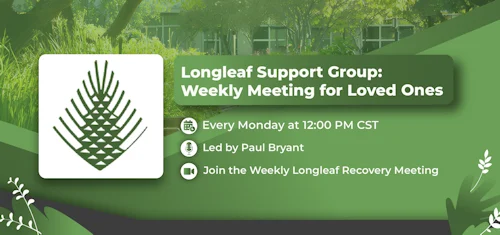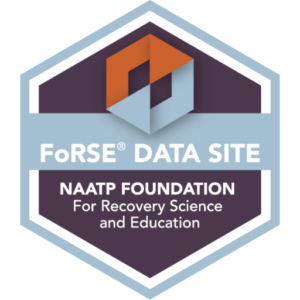Neuropsychological testing helps identify how the brain is working by looking at thinking, memory, mood, and behavior. It is used to assess conditions like ADHD, traumatic brain injury, dementia, learning disorders, depression, anxiety, and substance-related cognitive changes. It can uncover issues that affect learning, decision-making, or emotional stability.
At Longleaf Recovery in Birmingham, we offer compassionate neuropsychological evaluations tailored to each person’s needs. These tests help us create focused, effective treatment plans for lasting healing.
By understanding how your brain works, we can build a treatment plan that truly fits your needs. It also helps you better understand yourself and how to move forward. The tests are non-invasive and take a few hours to complete. They may include puzzles, drawing tasks, memory questions, or problem-solving games.
The goal isn’t to “pass” or “fail,” but to get an accurate picture of how your brain is doing. Results are reviewed by licensed specialists who can explain what they mean and what to do next.
How Neuropsychological Evaluations Support Long-Term Recovery
When you understand your brain better, you can learn how to work with it—not against it. This knowledge helps people build healthier habits, make better choices, and stay on track long term.
For example, if memory or decision-making is impaired, we can add cognitive therapy or mindfulness to treatment. These targeted supports help reduce frustration, improve daily function, and support relapse prevention.
Over time, re-testing can track how the brain improves with sobriety and care. This gives people hope and shows that change is possible.
Conditions and Concerns Assessed Through Testing
By identifying these issues early, we can create a treatment plan that supports your recovery and long-term well-being. Below are the key areas tested during a neuropsychological assessment:
Cognitive functioning is how your brain gathers, understands, and uses information. Testing looks at skills like reasoning, problem-solving, and comprehension. If thinking feels foggy or slow, this can reveal what’s going on. For people in recovery, this is common after long-term substance use.
Understanding how your brain works—what comes easily and what’s harder—helps create a treatment plan that supports thinking and healing.
Many people in addiction recovery struggle with forgetfulness, confusion, or trouble staying focused. Testing helps separate normal forgetfulness from more serious concerns. It measures how well you remember words, images, or instructions, and how long you can stay focused. Attention and memory issues can affect daily tasks and emotional health.
By identifying specific memory or focus problems, we can use tools like routine-building, reminders, or therapy to support progress.
Neuropsychological testing also looks at how emotions and behavior are connected to brain function. This includes issues like mood swings, impulsivity, or social withdrawal. These symptoms can be caused by trauma, brain injury, or prolonged drug use. If left unaddressed, these challenges can get in the way of recovery and strain relationships.
Testing helps us understand your emotional patterns and find strategies to manage reactions, reduce stress, and improve quality of life.
Many people in recovery also live with mental health disorders like anxiety, depression, or PTSD. This is called a co-occurring condition or dual diagnosis. Neuropsychological testing helps identify these conditions clearly, even when symptoms overlap with addiction. It shows how mental health struggles can affect your thoughts, emotions, and everyday life.
With these insights, we can offer integrated care that supports both mental health and substance recovery—leading to more stable, lasting outcomes.
What to Expect During a Neuropsychological Assessment
Here’s what a typical assessment may include:
- Interview: A conversation about your symptoms, history, and goals for recovery or support.
- Paper-and-Pencil Tests: Tasks that look at memory, language, attention, and problem-solving.
- Computer Tasks: Simple games or questions that measure speed, focus, and response time.
- Mood and Personality Checklists: Questions that help us understand emotional health and behavioral patterns.
- Feedback Session: A follow-up where your results are explained and next steps are discussed.
These tests aren’t about getting a score—they’re about getting the right support.
The Role of Testing in Developing Personalized Treatment Plans
Everyone’s journey through addiction and healing is different. That’s why one-size-fits-all treatment often falls short. Neuropsychological testing helps uncover how your brain works, where you may struggle, and what support you need.
By understanding your thinking, memory, and emotions, we can shape a plan that fits your real life—not just a checklist. These insights help us focus on what matters most, whether it’s managing anxiety, improving focus, or rebuilding daily routines.
This kind of testing allows us to move beyond surface symptoms. We get to the root of the challenges so that recovery becomes more realistic, focused, and supportive.
Benefits of Neuropsychological Testing for Individuals in Recovery
- Better Self-Understanding: Helps you recognize how your brain has been affected and what strengths you can build on.
- Targeted Therapy: Guides clinicians in choosing therapies that meet your actual mental, emotional, and cognitive needs.
- Early Detection: Flags possible mental health conditions that may have gone unnoticed, like ADHD, PTSD, or depression.
- Tracking Progress: Allows you and your care team to measure brain improvements over time.
- Improved Coping Tools: Provides practical suggestions for focus, memory, or emotional regulation that fit your needs.
- Stronger Relapse Prevention: Reveals hidden triggers or risks that could lead to relapse and how to manage them.
How Testing Helps Identify Barriers to Sobriety
Here are some ways it helps identify the things getting in your way:
- Cognitive Impairments: Trouble with memory, focus, or decision-making that can affect daily choices and routines.
- Undiagnosed Mental Health Issues: Conditions like anxiety or bipolar disorder that increase relapse risk when untreated.
- Emotional Regulation Difficulties: Struggles with anger, sadness, or impulse control that interfere with relationships and coping.
- Learning Differences: Challenges that make it harder to grasp recovery tools or follow structured plans.
- Trauma History: Past emotional wounds that affect trust, safety, and emotional healing in recovery spaces.
Identifying these barriers early helps us build strategies that support you in real, lasting ways.
Is Neuropsychological Testing Right for You or a Loved One?
If you or someone you love is in recovery and still struggling with memory, focus, or emotional ups and downs, testing may help. It’s especially helpful when problems continue even after substance use has stopped.
Neuropsychological testing is not just for serious brain injuries—it’s also for people who feel “off” and don’t know why. It gives answers when things feel confusing, and it opens the door to support that fits your brain and your life.
Whether you’re early in recovery or years into it, this kind of insight can make the difference between just surviving and truly healing.
Insurances We Accept








Neuropsychological Testing at Longleaf Recovery: Why Choose Us
Our tests are administered by licensed professionals with experience in mental health, addiction, and brain health. They know how to make people feel at ease and respected throughout the process.
We don’t just hand you results—we explain them clearly and use them to build a treatment plan that actually makes sense for your life.
Start Healing Today: Comprehensive Assessments in Birmingham, AL
At Longleaf Recovery in Birmingham, we offer supportive, personalized assessments that shine a light on what’s really going on. You deserve support that sees both how your brain works and the life experiences that shaped you.
We protect your privacy by following strict HIPAA rules, and only licensed staff can access your testing results. We also work with most insurance plans and will help you check your coverage before you begin.
Call us today or reach out online to schedule your evaluation. You don’t have to figure this out alone—we’ll walk with you.







